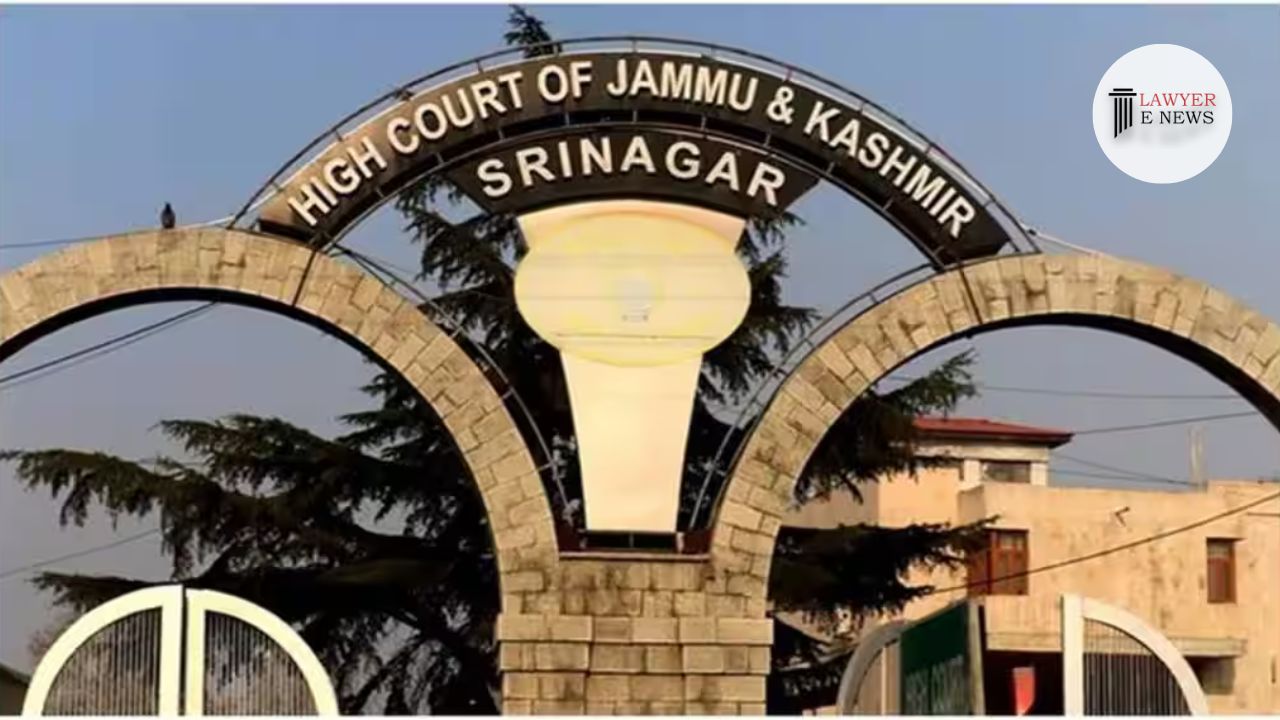-
by Admin
15 February 2026 2:16 AM



High Court upholds enhanced interim compensation from Rs. 15,000 to Rs. 31,000 per month, emphasizing legislative intent and children’s welfare.
In a significant ruling, the High Court of Jammu & Kashmir and Ladakh at Srinagar has upheld an appellate court’s decision to enhance interim monetary compensation in a domestic violence case. The judgment, delivered by Justice Sanjay Dhar, affirmed the increase from Rs. 15,000 to Rs. 31,000 per month and addressed the legal contention regarding the appealability of interim orders under Section 29 of the Protection of Women from Domestic Violence Act, 2005 (DV Act).
The petitioner, Abdul Rouf Shah, challenged the order of the 1st Additional Sessions Judge, Srinagar, which had enhanced the interim monetary compensation payable to the respondents—his estranged wife Atiqa Hassan and their two children—from Rs. 15,000 to Rs. 31,000 per month. The initial interim order issued by the Judicial Magistrate had set the compensation at Rs. 10,000 for the wife and Rs. 5,500 for each child, which was later reduced to Rs. 5,000 for each by the same magistrate. This reduction was contested by the respondents, leading to the enhancement by the appellate court.
While the primary legal discussion did not revolve around medical evidence, the judgment underscored the importance of a thorough and reasoned analysis in judicial orders, which indirectly pertains to the credibility of evidence presented.
Justice Dhar emphasized the necessity for detailed reasoning in judicial decisions. He noted that the initial reduction of compensation by the Trial Magistrate was “cryptic and lacking reasons,” which was rectified by the 1st Additional Sessions Judge through a meticulous analysis of the petitioner’s substantial salary and the educational needs of the children.
The judgment extensively discussed the scope of appeal under Section 29 of the DV Act. It rejected the petitioner’s reliance on a Punjab & Haryana High Court decision, which argued that no appeal lies against interim orders. Instead, Justice Dhar endorsed the views of the Uttarakhand and Delhi High Courts, which support the appealability of interim orders under Section 29. “Section 29 neither bars filing of an appeal against an interim order nor does it specifically provide for an appeal against an interim order,” the court noted.
Justice Sanjay Dhar remarked, “If the Legislature intended to bar filing of an appeal against an interim order passed in the proceedings under DV Act, it could have specifically provided so in Section 29 of the Act. In the absence of any specific bar, an interim order cannot be kept outside the purview of Section 29.”
The High Court’s dismissal of Abdul Rouf Shah’s petition reinforces the judiciary’s commitment to ensuring adequate interim reliefs under the DV Act. By upholding the enhanced compensation and clarifying the appealability of interim orders, the judgment sets a crucial precedent for future domestic violence cases. It underscores the importance of reasoned judicial orders and reaffirms the legal framework protecting the rights of aggrieved parties under the DV Act.
Date of Decision: May 31, 2024
Abdul Rouf Shah vs. Atiqa Hassan & Others
